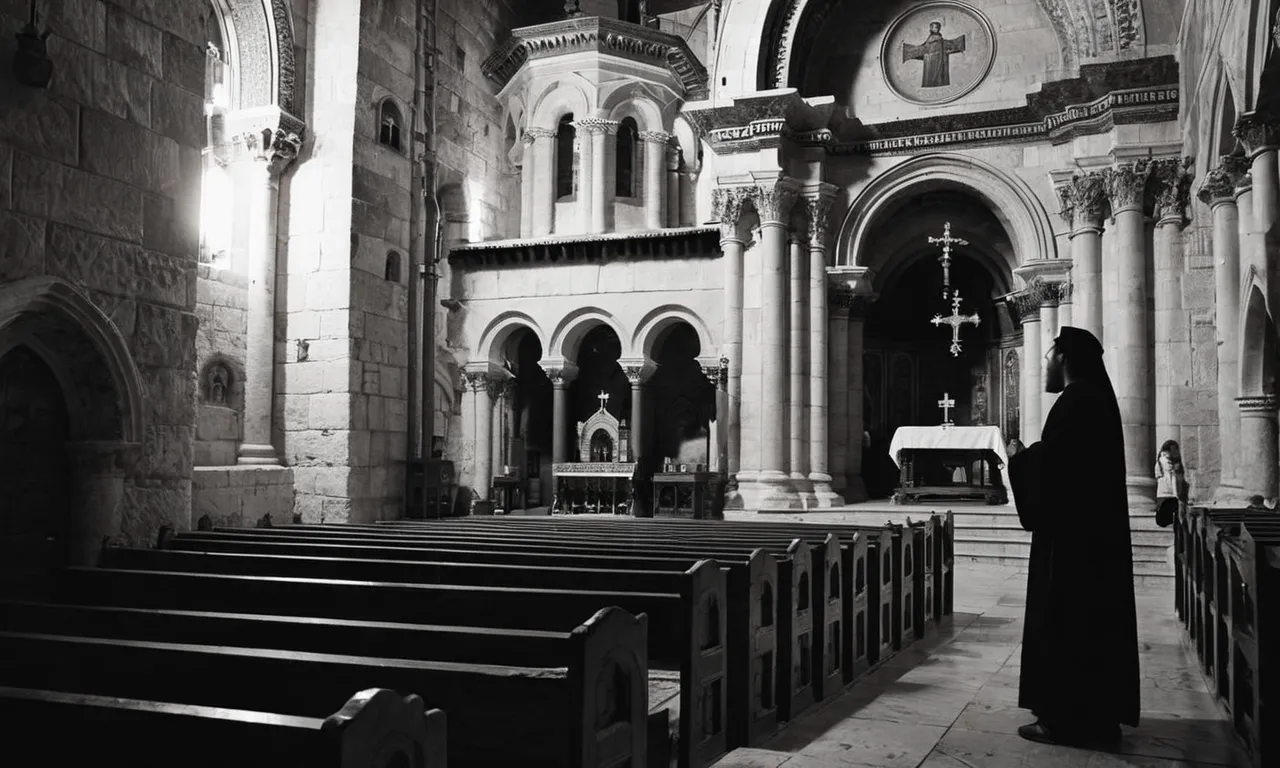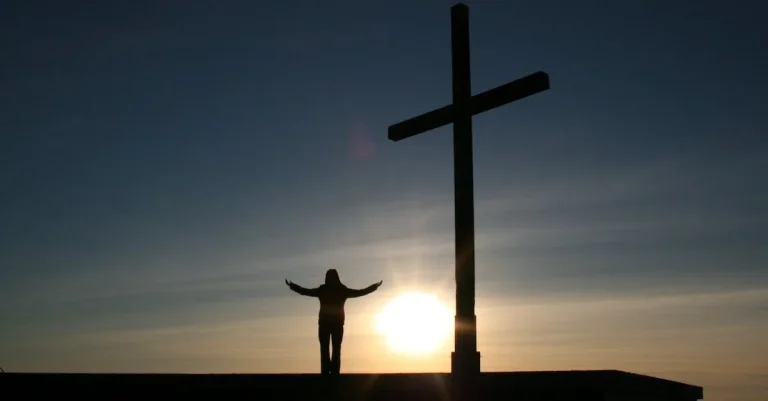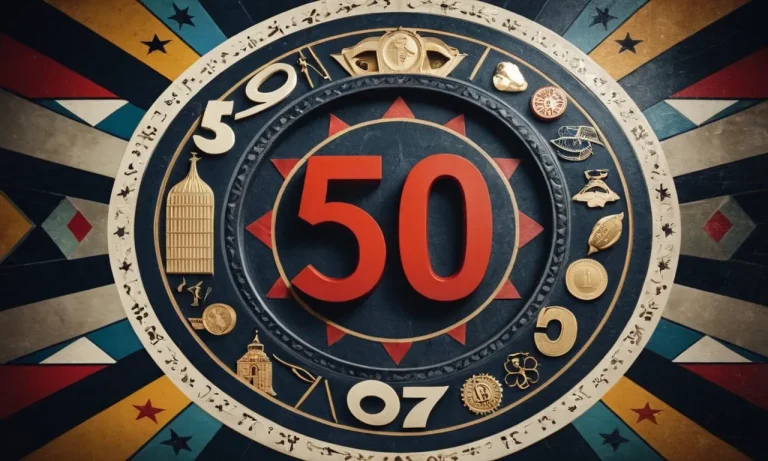What Church Did Jesus Christ Found?
The question of what church Jesus Christ founded has been debated for centuries. Many Christian denominations claim direct lineage back to Jesus and his original disciples. Uncovering the origins of the Christian church provides insight into the beginnings of the faith itself.
If you’re short on time, here’s a quick answer to your question: Jesus Christ did not found any specific church himself. However, he is considered by Christians to be the founder of the universal Christian Church.
In this approximately 3000 word article, we will examine the evidence from the Bible and early Christian history to see what light they shed on this important theological question. We will look at Jesus’ ministry, his intentions in gathering followers, and how the apostles organized the first Christian communities.
Special focus will be given to Peter as holding a unique leadership role. We will trace the passing down of apostolic authority through the ages and discuss the Catholic claim to have an unbroken chain extending back to Jesus himself.
Jesus’ Ministry and Intentions
Jesus as Fulfillment of Old Testament Prophecies
Jesus came as the fulfillment of many Old Testament prophecies about the coming Messiah. For example, Jesus fulfilled prophecies about being born in Bethlehem (Micah 5:2), entering Jerusalem riding on a donkey (Zechariah 9:9), being betrayed for 30 pieces of silver (Zechariah 11:12-13), and being pierced while dying on the cross (Psalms 22:16).
These specific prophecies, written hundreds of years before Jesus’ birth, confirm his identity as the long-awaited Messiah.
Jesus Gathering Followers and Apostles
During his earthly ministry, Jesus gathered a group of dedicated followers and chose 12 of them to be his closest disciples and apostles. The fact that Jesus personally trained this small group of leaders provides evidence that he intended to establish an organized spiritual community that would carry on his mission after his death and resurrection.
Jesus gave his apostles authority to teach (Matthew 28:19-20) and lead (Matthew 16:19) the early church.
Evidence Jesus Wanted to Establish a Church
There is compelling biblical evidence that Jesus intended to establish a church that would represent him on earth after his ascension into heaven. For example:
- Jesus stated he would build his church on the apostle Peter’s confession of faith (Matthew 16:18).
- Jesus gave his followers authority to baptize new converts in the name of the Father, Son and Holy Spirit (Matthew 28:19). This instituted a ritual of initiation into the Christian community.
- On the Day of Pentecost as recorded in Acts 2, the early followers of Jesus began organizing themselves as a spiritual community guided by the apostles’ teaching, prayer, communal meals, and worship.
Clearly Jesus envisioned and put into place the foundational pieces of an identifiable, cohesive assembly of believers that we could rightly identify as the early Christian church.
Peter’s Unique Position Among the Apostles
Peter’s Name Change Signified Leadership Role
When Jesus first met Simon, He gave him the name Cephas or Peter which means “rock” (John 1:42). This signified that Peter would have a solid, foundational leadership role among the 12 disciples. As a fisherman, Peter was transformed into the leader of Christ’s church after denying Jesus three times and later being restored (John 21:15-19).
This demonstrated Peter’s primacy and the forgiveness through grace that we all receive.
Peter Speaking for the Apostles
Throughout the gospels, Peter is often depicted as a spokesperson for all 12 apostles. After Jesus walked on water, Peter was the one who spoke out, “Lord, if it’s you, tell me to come to you on the water” (Matthew 14:28).
When Jesus asked who people say He is, Peter replied “You are the Christ, the Son of the living God” on behalf of all the apostles (Matthew 16:16). The writers of the gospels recognized Peter’s authoritative role in expressing the group’s thoughts and beliefs.
Jesus Giving Peter the Keys to the Kingdom
In a well-known passage, Jesus tells Peter “I will give you the keys of the kingdom of heaven; whatever you bind on earth will be bound in heaven, and whatever you loose on earth will be loosed in heaven” (Matthew 16:19).
Roman Catholic tradition sees this as Christ establishing Peter as the first Pope. Most Protestant teaching says Jesus was appointing Peter to a preeminent position of leadership among equals in the 12 apostles.
In any case, Peter was given special authority to proclaim the gospel and make disciplinary decisions holding the power of heaven behind it.
In passages like Luke 22:31-32, Jesus prays specifically for Peter that his faith would not fail as he strengthens the other disciples. This shows Jesus picking out Peter and building up his faith knowing that he would lead the early church after Christ’s ascension.
The book of Acts frequently depicts Peter speaking boldly on the day of Pentecost (Acts 2:14), in healing miracles (Acts 3:4-6), and in defending the faith before critics (Acts 4:8). He was the pioneer who opened up preaching the gospel to the Gentiles (Acts 10).
Among the apostles, Peter was given a distinctive leadership role directly commissioned by Jesus.
The Early Christian Church After Jesus
The Apostles Lead the Jerusalem Church
After Jesus ascended into heaven, the 12 apostles took a leading role in establishing and guiding the early Christian church. They began preaching and baptizing new converts in Jerusalem, with Peter and John emerging as key leaders.
According to Acts, over 3,000 people were converted and baptized on the day of Pentecost alone!
The apostles witnessed to the resurrection of Christ and performed many signs and wonders among the people, adding greatly to the church’s numbers. They taught and fellowshipped with other believers, remembering the Lord through the breaking of bread and prayer (Acts 2:42).
The early church was unified, sharing possessions so that no one was in need (Acts 4:32-35).
Peter’s Preeminence in Early Church
Peter stands out as the preeminent apostle in the early church. He preached a powerful sermon on the day of Pentecost and continued preaching, even being imprisoned for it. He spoke before crowds, opened the door of faith to the Gentiles, and wrote letters to churches that became Scripture.
Jesus had given Peter special authority, charging him to “feed my lambs” and “tend my sheep” (John 21:15-17), which established him as a leader.
The book of Acts shows Peter’s travels and work in building up believers, including missions outside Jerusalem to Samaria and Caesarea. His shadow was known to heal the sick when it fell on them (Acts 5:15). Peter helped appoint a replacement apostle and settle disputes.
He left an indelible mark on the nascent Christian movement.
Lineage of Bishops in Apostolic Sees
Jesus told Peter, “upon this rock I will build my church” (Matthew 16:18). After founding the church in Jerusalem, most apostles traveled to spread the gospel and establish churches in major cities across the known world.
These churches founded directly by apostles based in Antioch, Alexandria, and Rome were known as “apostolic sees.”
A key distinguishing mark was the lineage of bishops succeeding the apostles in leading these churches. For example, Peter went to Rome, served as its first bishop, and appointed Linus as second bishop before martyrdom.
This direct line of apostolic succession through the laying on of hands became an important criteria for validating churches. To this day, both the Catholic and Eastern Orthodox churches carefully preserve episcopal lineage tying their bishops back to the original apostles.
Was Peter the First Pope?
Meaning of ‘Pope’ and Papal Infallibility
The word “pope” comes from the Greek word “pappas” meaning “father.” In the Catholic tradition, the pope is regarded as the successor of St. Peter and the spiritual leader of all Catholics. The doctrine of papal infallibility asserts that the pope cannot err when defining matters of faith and morals.
Evidence Peter Led Church from Rome
There is debate amongst scholars about whether Peter actually served as the first pope in Rome. According to Catholic tradition, Peter traveled to Rome and led the early church there for 25 years as its first bishop.
However, some scholars argue the evidence that Peter led the church from Rome is inconclusive. While Peter may have visited Rome, some claim the leadership structure of monarchical bishop was a later development in church hierarchy.
Unbroken Line of Succession from Peter
The Catholic Church teaches it has an unbroken line of popes succeeding Peter for nearly 2,000 years to the current Pope Francis. However, critics argue gaps exist in early papal succession and claim other churches also have apostolic succession tied to Peter and other apostles.
Additional scrutiny exists around the “Donation of Constantine,” a document which turned out to be forged, that forms part of the basis for papal authority claims.
Marks of the True Church Founded by Jesus
Apostolicity
The Catholic Church can trace its lineage all the way back to Jesus Christ and His apostles. As the first Pope, St. Peter passed his apostolic authority on to the next Pope, and this unbroken line of apostolic succession continues to this day with Pope Francis.
This means the Catholic Church retains the same teaching authority and mission entrusted to it by Christ over 2,000 years ago.
Unity
Jesus prayed to the Father that His followers “may all be one” (John 17:21). This unity is manifested in the Catholic Church’s shared beliefs, sacraments, and leadership under the Pope. Despite having over 1.3 billion members globally, the Catholic Church maintains doctrinal and moral unity while celebrating cultural diversity.
Holiness
The Catholic Church provides abundant resources for members to grow in holiness, such as the sacraments, Mass, scripture, catechesis, and more. While the Church is made up of imperfect sinners, it is also a community of saints who model heroic virtue and guide others on the path to heaven.
The lives of saints—from the apostles to Mother Teresa—provide concrete examples of holiness.
Catholicity
The word “catholic” means universal. From ancient Rome to modern times, the Catholic Church has spread worldwide, transcending boundaries of nationality, ethnicity, and culture. It comprises members “from every race, tongue, people and nation” (Revelation 5:9).
Though diversified, the Church retains union in essential beliefs and worship.
Papal Succession in the Catholic Church
Unbroken line spanning 20 centuries: Catholic tradition holds that St. Peter was appointed by Christ as head of the Church (Matthew 16:18). This special role has been passed down through an unbroken line of popes to the current Pope Francis—266th in this papal succession spanning over 2,000 years.
| Current Pope | Papacy start | Number of predecessors |
|---|---|---|
| Pope Francis | March 13, 2013 | 265 |
Though there were periods when multiple papal claimants created confusion, historian Philip Hughes said: “Always there has been a relatively easily recognizable mainstream of papal succession….Read in the pages of any history book, they tell the same essential story.”
This continual chain connects today’s Catholics in spiritual communion with Peter and the apostles from the primitive Church.
Conclusion
While the exact details may never be known, compelling biblical and historical evidence points to Jesus having established a visible church with Peter and the apostles at the helm. He gave Peter special authority to lead the fledgling church as its first pope.
This apostolic authority was handed down through an unbroken line of popes to the present day. Therefore, based on its marks of being apostolic, unified, holy, catholic and under the leadership of the papal successor of Peter, the Roman Catholic Church has the strongest claim to being the one true church founded by Jesus Christ.








